Srila Prabhupada
Srila Prabhupada and His Books
Of all his contributions, Srila Prabhupada considered his books to be of utmost importance. These books present the timeless wisdom of Vedic scriptures in modern English with startling clarity and a convincing, simple eloquence that proves the relevance of the science of self realization to our modern world and our own lives. These books have changed the lives of millions. Srila Prabhupada encouraged the devotees to distribute this literature profusely. These books are translated in most of the major languages and are widely distributed across the world.
Accomplishments of Srila Prabhupada
Srila Prabhupada’s attempts to propagate Krishna Consciousness were not well received by the Indian community. At the age of 69 (1967) he went to the United States and incorporated the International Society for Krishna Consciousness (ISKCON). He left this world in the year 1977. The video on the right is about his accomplishments during the brief period of 11 years from 1967 – 1977.
VIDEOS
A Brief Biography of His Divine Grace
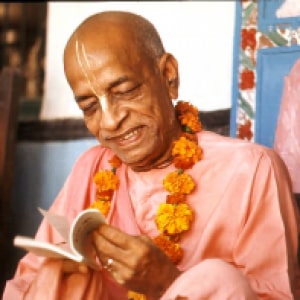
His Divine Books
In 1935, Srila Prabhupada met his spiritual master Srila Bhaktisiddhanta Sarasvati Thakura in Vrindavana. In a private meeting, Bhaktisiddhanta Sarasvati Thakura told Srila Prabhupada
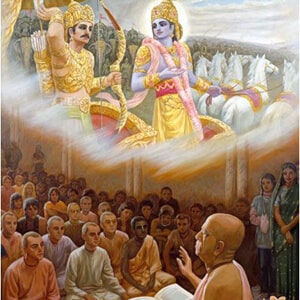
Prophecy Concluded
After arriving in New York city in September 1965, Srila Prabhupada struggled alone for an year to establish the Krishna Consciousness movement. He lived simply, lectured whenever and wherever

Journey to the West
A few days before his sixty-ninth birthday, Srila Prabhupada set out for America. He got a free ticket to travel to New York from the proprietor of Scindia Steamship Company, Smt. Sumatee Morarji.
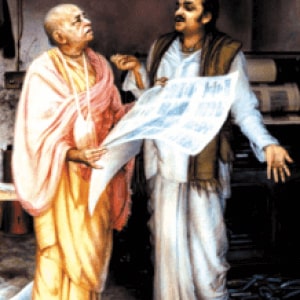
Broadcasting Krishna
After taking initiation from Srila Bhaktisiddhanta Sarasvati Thakura, Srila Prabhupada was contributing to his spiritual master’s mission by donating money as he was doing earlier, but now he wanted to do
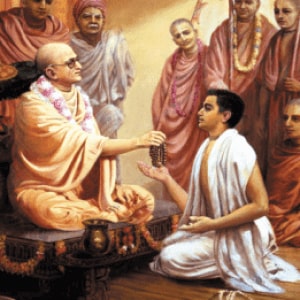
Meeting His Spiritual Master
Srila Prabhupada became a student of philosophy at the Scottish Churches’ College in 1916. It was a prestigious college. In 1918, when he was in the third year of his college, Gour Mohan De got him married
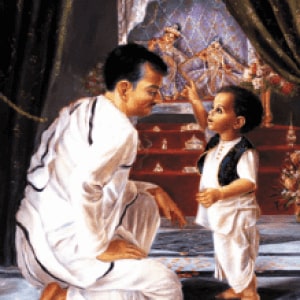
Childhood in Calcutta
On September 01, 1896, the day after Janmashtami (the auspicious appearance day of Lord Sri Krishna) in a little house in the Tollygunge suburb of Calcutta, a male child was born.
